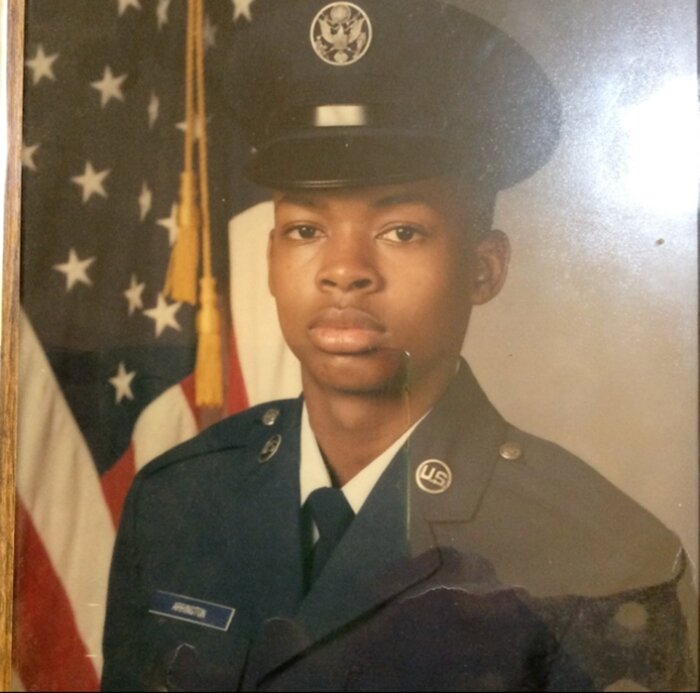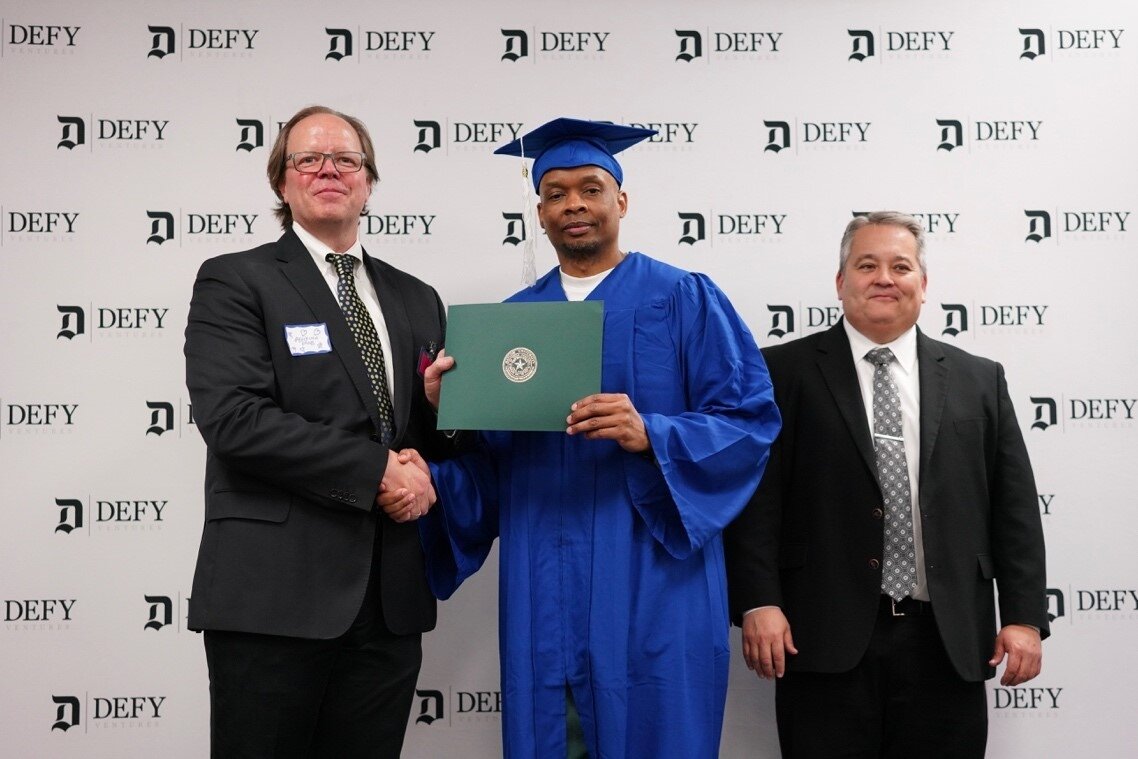Colorado man seizes his second chance after 30 years behind bars

DENVER — When 22-year-old Abron Arrington walked into prison in 1989, the world was getting more interconnected as the Soviet Union neared its collapse. Thirty years later, he walked out free in the middle of a global pandemic that shut down the world. Yet, Arrington remains grateful for the life he had behind bars.
“If I had a chance to live my life again, I wouldn’t change anything,” says Abron Arrington, a Care Manager at Second Chance Center. “I learned a great deal over the years from my experiences, as hard as they had been. I am not saying I enjoyed all of it, but who enjoys every aspect of their lives?”
Arrington joined the United States Air Force at age 18 and served for four years. He was planning on going to college afterward to study aeronautical engineering. Upon returning home to Colorado Springs, however, a family friend invited him to a party that changed his life.
“The funny thing about it, I didn’t even want to go to the party,” recalls Arrington. Nevertheless, he ended up going, and during the party, his family friend and two others left to “supposedly purchase some drugs…and the drug dealer got killed,” Arrington explained.
The police arrested Arrington, who had no criminal record at the time, after his name had come up in the investigation. He was convicted of first-degree murder and sentenced to life imprisonment. But Arrington has disputed this conviction ever since, asserting he wasn’t even present at the crime scene.
Being a Muslim in a Colorado Prison
Besides appealing in court, Arrington fought discrimination in prison. Being a Muslim, he experienced difficulties he had not anticipated.
Sitting in his office smiling about it, Arrington remembers how one of the guards used to give him a hard time in Ramadan, the Islamic holy month when Muslims fast from sunrise to sunset. “He loved just harassing Muslims,” said Arrington.

In Ramadan, prison staff were bringing Muslims very early in the morning to eat before they started fasting. But that guard would intentionally leave the door open, and it was in January.
“The room was just freezing, and he thought it was one of the funnest things to do,” Arrington says with a smile still on his face.
Arrington and other Muslim prisoners in Colorado successfully demanded a halal diet in compliance with Islamic faith. They also asked to be allowed to wear a kufi, a traditional headcover that some Muslim men wear in and outside prayer.
Graduating Prison University
It is true Arrington wasn’t able to attend college as he had intended, but he never abandoned his passion for learning throughout his years in prison.
“I didn’t want prison to make me into someone I knew I was not,” said Arrington. He went on to study Arabic, Spanish, math, physics, and engineering, among other subjects.
Arrington then began to come up with inventions that he would sketch inside his prison cell. He decided to use what he has learned to develop a flood mitigation system after seeing the devastating impact of flooding on TV.
“I remember how much that saddened me when I saw it,” said Arrington. “I became really angry because I was like why we are putting people on the moon, we can do that, but we can’t come up with a better thing than sandbags to protect against flooding.”
With the help of his siblings, Arrington patented his flood mitigation system that won him first place in Defy Colorado’s competition, in which prisoners pitch and develop business plans for their projects.
He also met a businessman inside prison that decided to invest in the product. Arrington’s flood mitigation system is currently on its way to the market
Although Arrington achieved some of his goals behind bars, walking out free remained the biggest dream. His lawyer filed an executive clemency petition on the grounds of actual innocence, which Governor Polis later granted.
“I believe you deserve parole for several reasons,” said Polis in his letter to Arrington. “Though you did not commit the murder yourself, you received a sentence for first-degree murder.”
For years, Colorado lawmakers have worked on revisiting the felony murder law, under which a defendant who didn’t commit the crime automatically earns a life sentence without possibility of parole.
In April 2021, Polis signed a bill that allows judges to decide on sentences between 16 and 48 years for felony murder charges. The revisited statute takes effect mid-September 2021.

Living and Giving the Second Chance
Arrington took his first breath of fresh air as a free man on February 27, 2020, and he is making the best out of his second chance. He married his childhood sweetheart and has been working on rolling out his flood mitigation system.
A week after his release, Arrington also joined Second Chance Center, which works on reintegrating formerly incarcerated individuals into society. In his current role as Care Manager, he provides resources that help individuals transition from prison to a life of prosperity.
And for that to happen, Arrington thinks we all have a role to play: “If a person gets out of prison and they are trying to go on with their lives, you don’t necessarily have to help them, but please don’t get in their way.”
Refer to the sources below if you or anyone you know would benefit from post-release reentry services and in-prison programs in Colorado
- Colorado Department of Correction’s Division of Adult Parole: 800.426.9143
- Second Chance Center: 303.537.5838
- Defy Colorado: 720.608.8459
- Christlife Ministries: 719.219.6835
- Doing HIS Time Prison Ministry: 303.300.3670
Kareem El Damanhoury is an assistant professor in the Department of Media, Film & Journalism Studies at the University of Denver.
